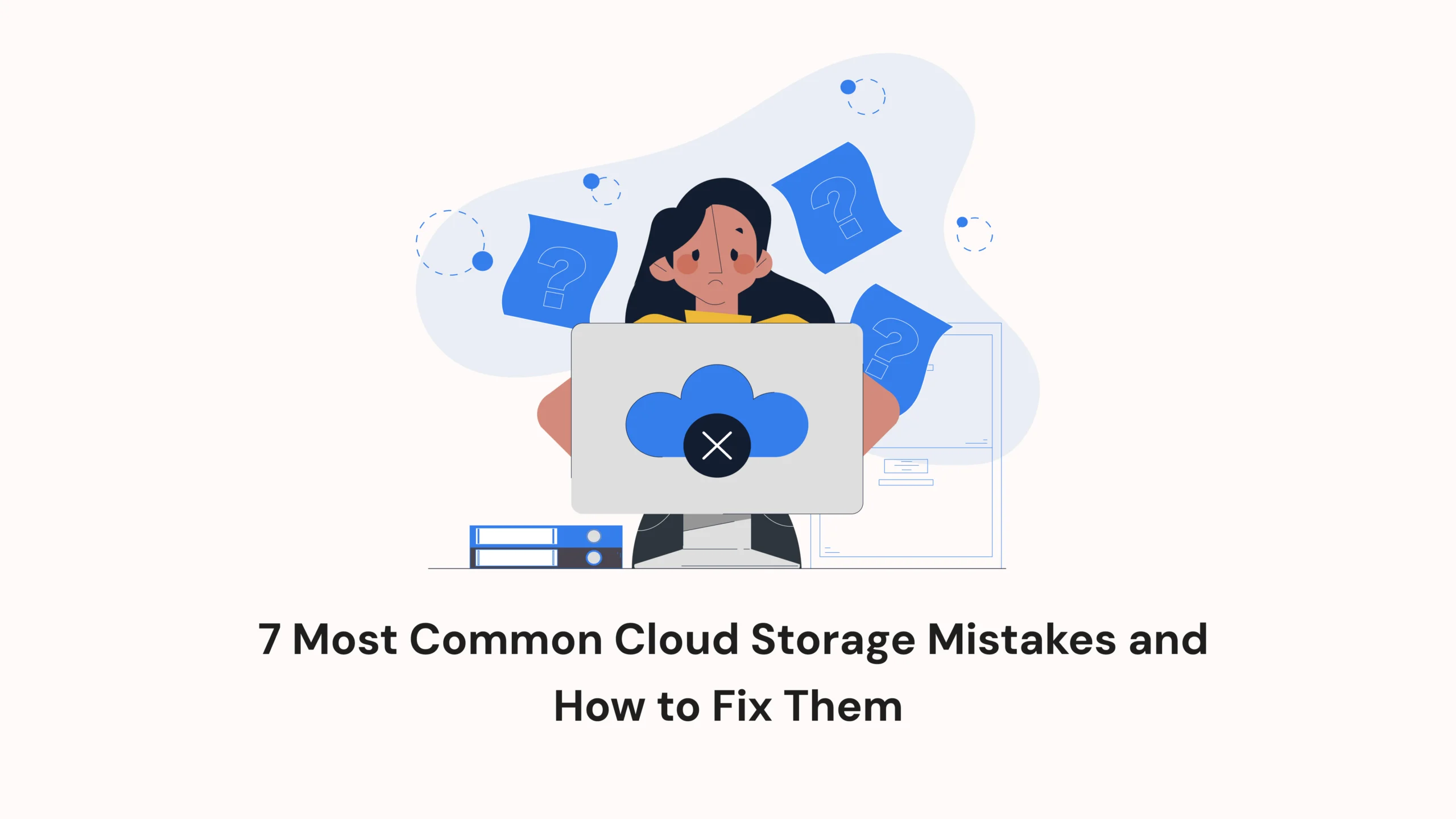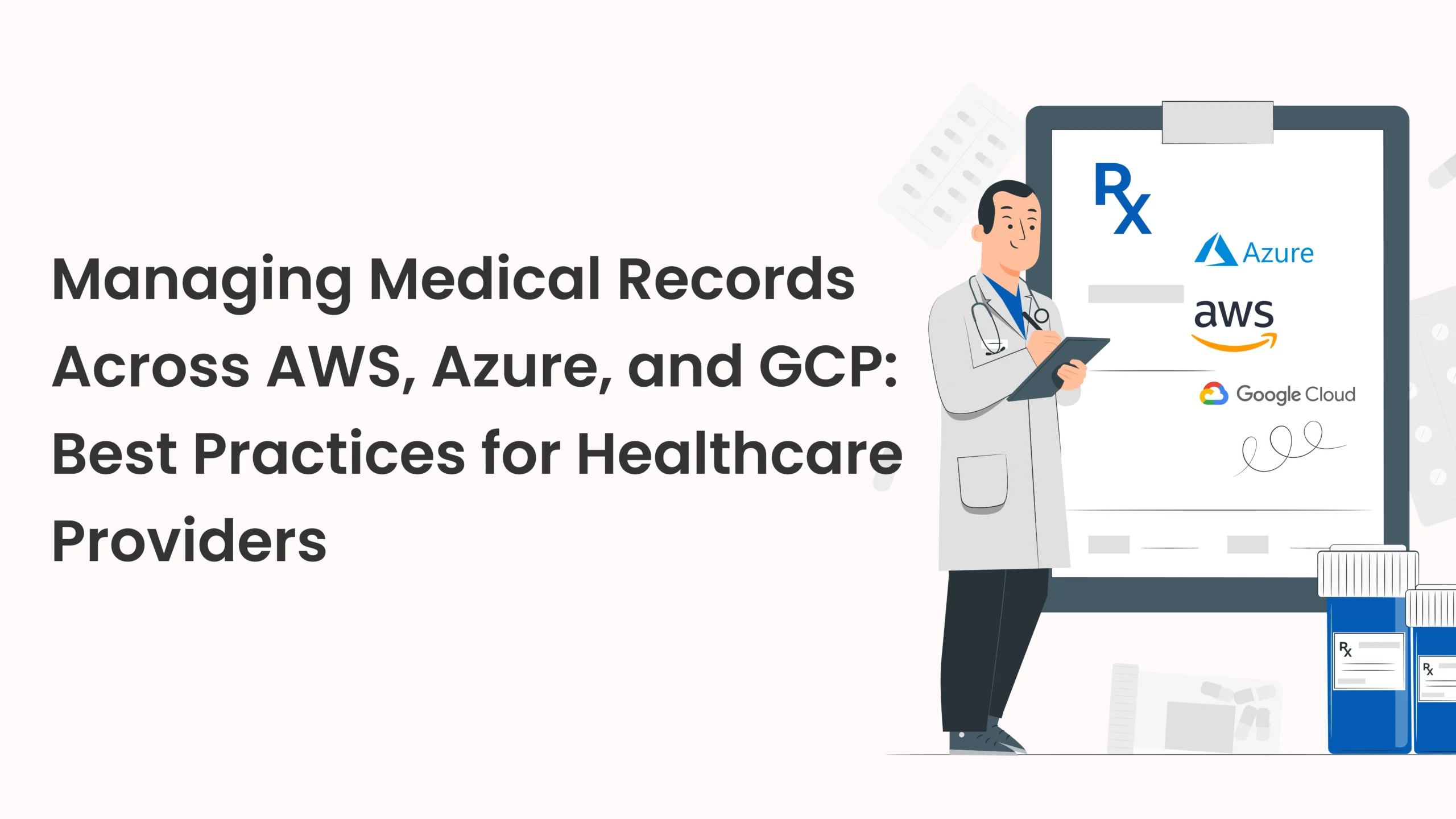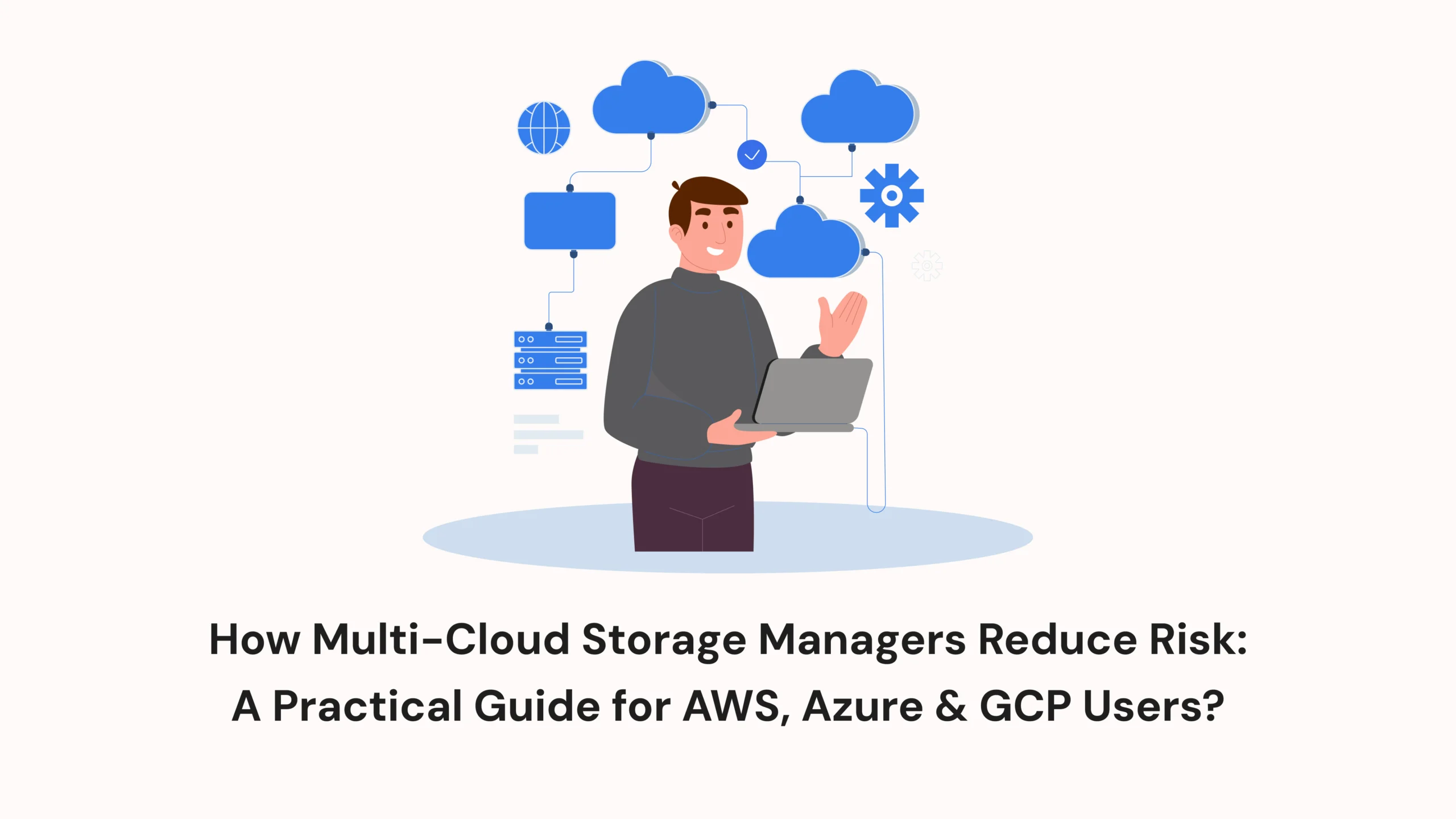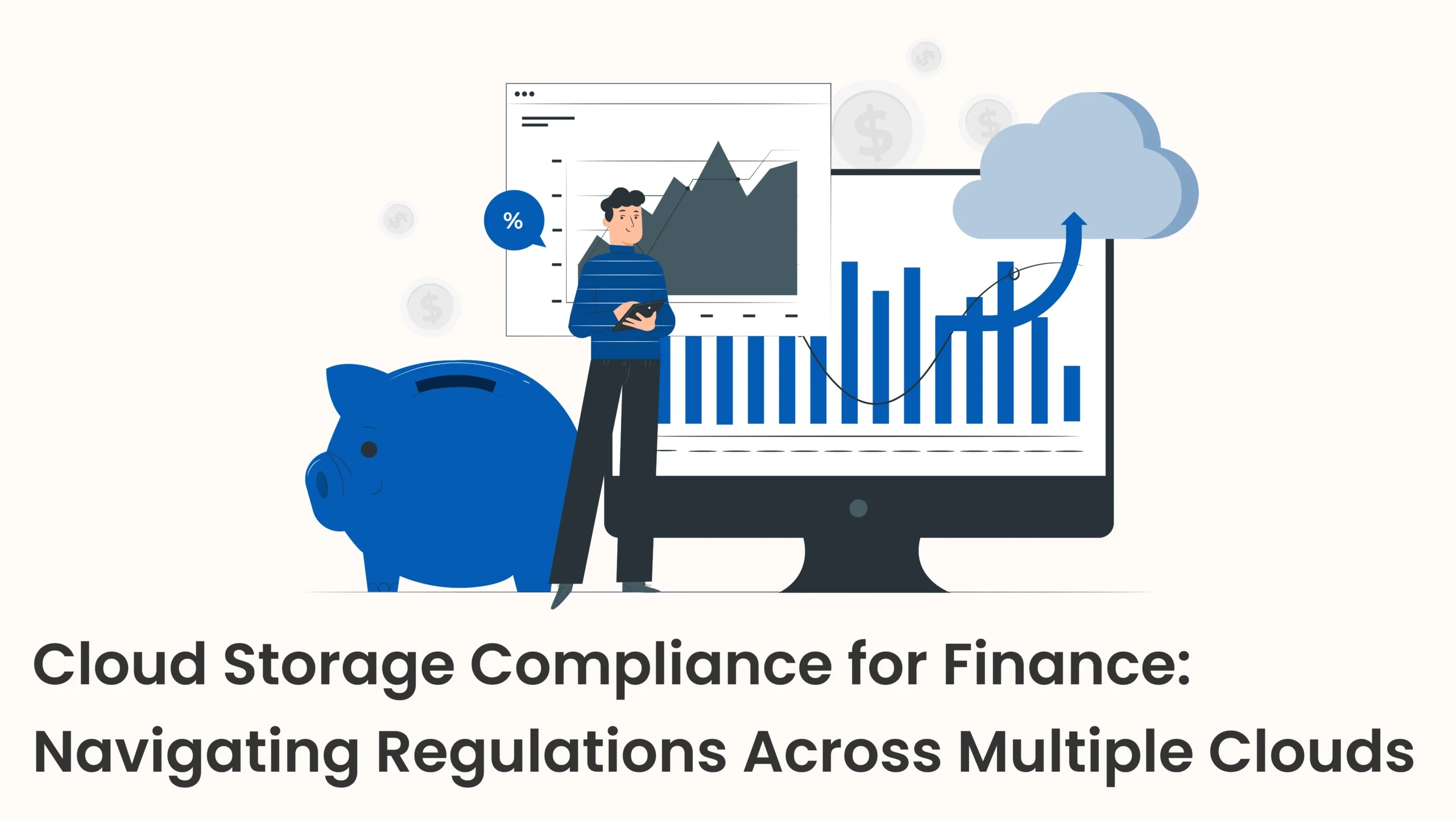
Cloud storage has become the backbone of modern business operations. Whether you’re using AWS S3, Azure Blob, GCP Storage, or...

Healthcare organizations today manage an ever-growing volume of sensitive patient data—from electronic health records (EHRs) to diagnostic imaging and lab results. To ensure reliability, compliance, and scalability, many providers are turning to cloud data storage in healthcare across major platforms like AWS, Microsoft Azure, and Google Cloud (GCP).
Healthcare organizations today manage an ever-growing volume of sensitive patient data—from electronic health records (EHRs) to diagnostic imaging and lab results. To ensure reliability, compliance, and scalability, many providers are turning to cloud data storage in healthcare across major platforms like AWS, Microsoft Azure, and Google Cloud (GCP).
But managing medical records in a multi-cloud setup can be challenging. From ensuring HIPAA compliance to preventing vendor lock-in, providers must carefully structure their healthcare cloud solutions.
This guide explores best practices, highlights common pitfalls, and explains how tools like Fylioo simplify multi-cloud healthcare storage management.
Cloud platforms are reshaping how healthcare providers collect, store, and secure patient records. Instead of investing heavily in on-premise data centers, organizations can:
This shift is why healthcare cloud storage is no longer optional—it’s essential for both patient outcomes and operational efficiency.
Patient data is highly regulated, with HIPAA in the U.S. and GDPR in Europe setting strict guidelines. Healthcare providers must:
Each provider—AWS, Azure, and GCP—offers compliance-ready services, but ultimate responsibility lies with healthcare organizations.
Each cloud platform has unique storage types that can support healthcare data:
Cloud Provider | Common Storage Types | Healthcare Use Case |
AWS | S3, Glacier | Long-term medical record archiving |
Azure | Blob Storage, Disk | Imaging data and active EHR workloads |
GCP | Cloud Storage, Filestore | Research datasets and AI analytics |
Healthcare organizations often mix services to balance cost, performance, and compliance.
One of the biggest challenges is ensuring seamless data movement across AWS, Azure, and GCP. Medical teams need access to consistent data without delays or compatibility issues.
Adopting standards like FHIR (Fast Healthcare Interoperability Resources) and APIs designed for healthcare ensures data portability between cloud providers.
Medical records cannot afford downtime. Providers should:
A multi-cloud strategy reduces the risk of dependency on a single provider.
Managing data across AWS, Azure, and GCP manually can be overwhelming. This is where platforms like Fylioo become essential.
Fylioo allows healthcare providers to:
By simplifying multi-cloud workflows, Fylioo helps healthcare IT teams stay focused on patient care instead of administrative headaches.
As healthcare providers embrace digital transformation, mastering cloud data storage in healthcare is no longer a choice—it’s a necessity. By adopting best practices in compliance, interoperability, and backup, providers can protect sensitive records while ensuring smooth access for clinicians.
With centralized tools like Fylioo, organizations can simplify multi-cloud management across AWS, Azure, and GCP, reduce costs, and stay compliant—ultimately improving patient outcomes.
Ready to simplify your healthcare cloud storage? Try Fylioo today and take control of your multi-cloud environment.
Most providers use a mix of cloud object storage (like AWS S3, Azure Blob, or GCP Storage) for structured and unstructured patient data. This allows healthcare teams to handle everything from EHRs to MRI scans efficiently.
The cloud is used for secure data storage, sharing, and collaboration across hospitals, labs, and research facilities. It also supports advanced AI analytics for faster diagnosis and treatment planning.
The three primary types are:

Cloud storage has become the backbone of modern business operations. Whether you’re using AWS S3, Azure Blob, GCP Storage, or...

As businesses grow, so does the amount of data they manage. Increasingly, companies are choosing a multi-cloud strategy—using AWS S3,...

If you work in finance, you already know that trust is everything. Customers share their most personal financial details—account balances,...
WhatsApp us